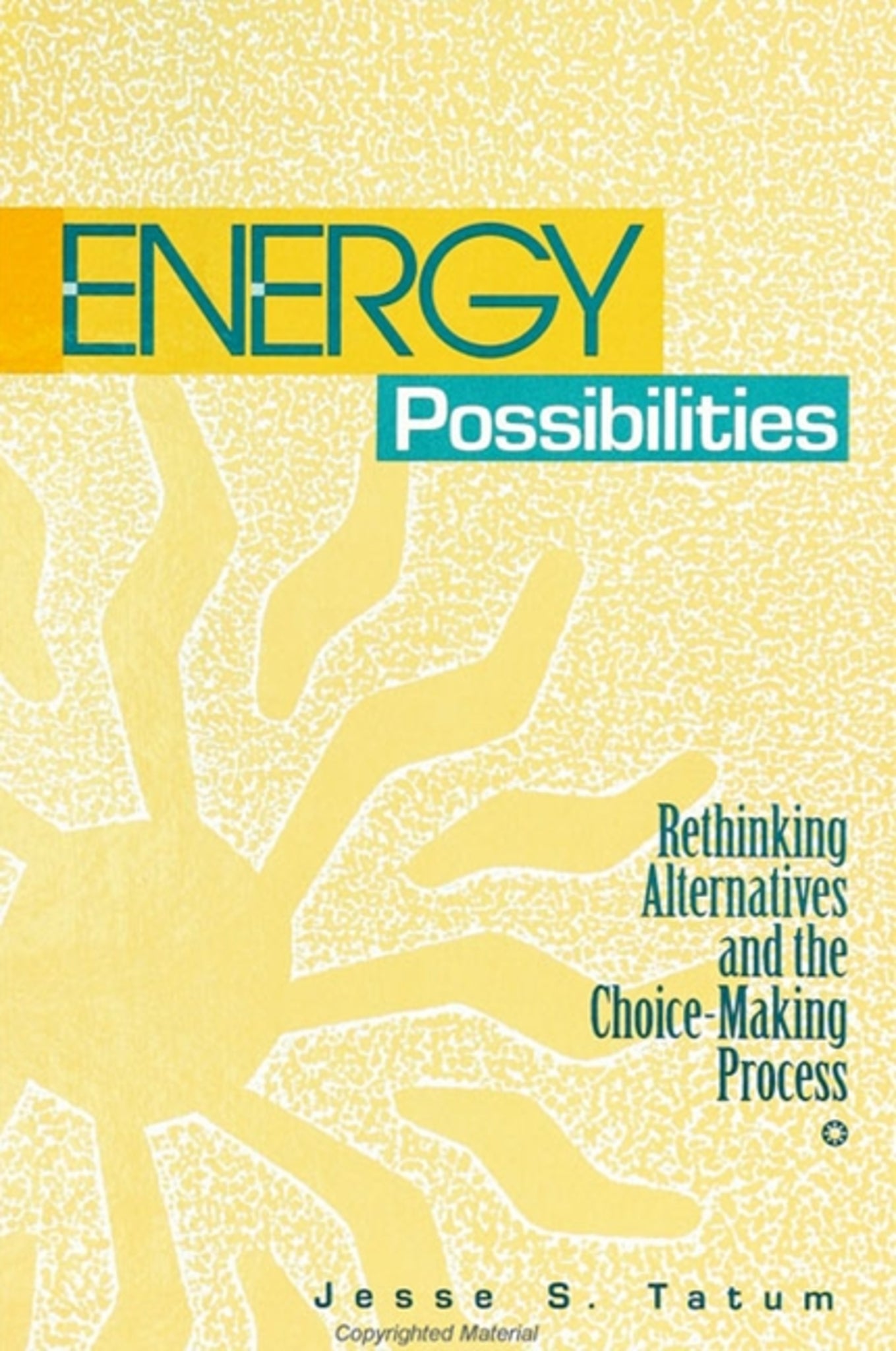We're sorry. An error has occurred
Please cancel or retry.
Energy Possibilities

Some error occured while loading the Quick View. Please close the Quick View and try reloading the page.
Couldn't load pickup availability
- Format:
-
14 September 1995

Examines the current and prospective energy sources and choices from the perspectives of science, technology, and social studies.
Using the perspectives of science, technology, and society studies, this book grapples with questions stimulated by a concern that current energy policies and practices reflect neither the best interests of ordinary people nor decision-making consistent with the traditions and aspirations of democracy. Probing the depths of assumptions made in traditional analysis and assembling minority views, present practices come into focus as startlingly narrow social constructs amidst a vast unexplored terrain of material and socio-cultural possibilities. Questions of power and responsible action are pursued in this context, casting both traditional decision makers and citizens in less than a positive light. The author includes an examination of the experience of the "home power" movement not as "The Solution" to our energy problems, but as a concrete illustration of alternative theory and practice, and of the range of possibilities inherent in energy decisions. The book aims not at recommendations for prescriptive public policy, but primarily at refocusing the reader's attentions, as ultimate policy maker, on the core of the energy question: How do we wish to live in the world?


"I admire Tatum's effort to foster reconceptualization of energy issues using a 'STS' (Science, Technology, and Society) framework. By focusing on problems with economic models and the conventional wisdom of engineers, he has steered clear of fruitless attempts to make alternative energy approaches look fully competitive on standard cost-benefit grounds. It is useful to see the linkages drawn between energy as a commodity, as a technology, and as an expression of social needs and values." — Lamont C. Hempel, The Claremont Graduate School
Preface
Acknowledgments
1. Raising the Question
Social Control?
Precedence of Economic Argument
Effective Conspiracy and Other Questions
A Note on Expectations
2. So Much Fuss over Energy?
Classical Concerns: A Thumbnail Sketch
Running Out or Running Short: Energy and Social Organization
Energy Technologies as "Forms of Life"
Energy and the Way We Live
The "Technological Fix"
3. Surely the Experts Have Thought the Matter Out
The Engineering Response
The Economic Response
The Failure of Traditional Methods
4. With Troubles Enough, Experts Differ
The Physical Role of Energy in the Economy
The Appropriateness of Economic Measures and Objectives
Other Disciplinary Perspectives and the Radical Impoverishment of Imagination
So Experts Differ
5. The Shaping of Responses
Collective Momentum
Popular Nonparticipation
Alternative Responses
The "Promise of Technology"
Power and Responsibility
6. Exploring the Option Space
Appropriate Expectations
The Home Power Movement: Introduction and Technology
Development of the Home Power Movement
Participation and Motivations
Interpretation and Significance
A Theoretical Framework for Home Power
Guidelines for Explorers
7. Where Does This Leave Us?
Lost?
How Do We Proceed?
Unredeemable Loss
Process and Outcome
Closing
Notes
Index



